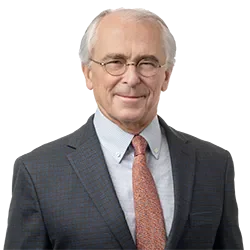ASAP
Senate Committee Questions DOL, EEOC Nominees
On June 18, 2025, the Senate Committee on Health, Education, Labor & Pensions held a hearing to consider four key nominations for leadership roles at the U.S. Department of Labor and the Equal Employment Opportunity Commission. The nominees included Jonathan Berry (solicitor, DOL), Andrea Lucas (commissioner and acting chair, EEOC), Andrew Rogers (administrator, Wage and Hour Division, DOL), and Anthony D’Esposito (inspector general, DOL). Each nominee addressed a range of questions from Committee members, with particular attention to how their respective roles would shape agency enforcement in light of current legal and political dynamics.
Andrea Lucas, currently serving as acting chair of the EEOC following her designation by President Trump in January 2025, appeared before the Committee for reappointment to a full term as commissioner. Lucas has led the agency during a period of significant transition, following the dismissal of two Democratic commissioners, which left the EEOC without a quorum. During this time, she has moved to align the agency’s enforcement priorities with recent executive orders, including those pertaining to diversity, equity, and inclusion-related practices by employers.
Lucas was questioned extensively on her approach to DEI investigations, the agency’s stance on gender identity protections, and the enforcement of the Pregnant Workers Fairness Act (PWFA). Lucas defended her leadership, emphasizing that the EEOC must operate within the bounds of statutory authority and executive direction. Lucas stated that while DEI goals are not inherently unlawful, employer programs that result in preferences based on protected categories – including race and sex – may violate Title VII of the Civil Rights Act of 1964. She emphasized her view that the EEOC is an executive branch agency—not an independent one—and must “fully and robustly comply” with presidential directives.
In response to concerns about the agency’s withdrawal from disparate impact litigation, Lucas argued that such cases often lack statutory clarity and can impose undue burdens on employers. She expressed skepticism about the EEOC’s prior guidance on gender identity and harassment, preferring a narrower interpretation of Bostock v. Clayton County. Democratic senators challenged Lucas on these positions, raising concerns about the agency’s retreat from civil rights enforcement tools it previously embraced.
Jonathan Berry was a principal contributor to Project 2025’s chapter on labor and employment. His contributions included proposals to narrow the scope of disparate impact liability, expand religious liberty defenses, and limit agency discretion to interpret civil rights statutes. During the hearing, Berry was pressed by Democratic senators on whether his affiliation with Project 2025 would influence his enforcement priorities, particularly in relation to DEI programs and protections for LGBTQ+ workers. He responded that while he stands by the principles of the project, his role as solicitor would be to uphold the law as written and ensure consistent, neutral enforcement. Berry also fielded questions about the Department’s role in overseeing employer DEI initiatives, expressing concern that such programs may inadvertently create legal risk under Title VII if they involve race- or sex-conscious practices. He said it is important for the agency to provide employers with clear, predictable guidance and to avoid regulatory overreach that could chill lawful efforts to foster inclusive workplaces.
Andrew Rogers, nominated to lead the Wage and Hour Division, addressed questions about the interaction of DEI and wage enforcement. He asserted that while DEI considerations may inform outreach and education, enforcement must remain neutral and focused on statutory violations. Rogers also emphasized the importance of ensuring that compliance resources are accessible and nonpartisan, particularly for small- and mid-sized employers.
Anthony D’Esposito, a former member of Congress and retired police detective, was nominated to serve as inspector general of the Department of Labor. Senators questioned him on how he would approach oversight of DEI-related spending and agency initiatives. D’Esposito assured them that he would conduct independent, apolitical audits and investigations, stating that his focus would be on identifying waste, fraud, and abuse regardless of political context. He pledged to work closely with Congress to ensure transparency and accountability across DOL programs, including those involving equity and inclusion efforts. His law enforcement background and legislative experience were cited by supporters as assets in restoring public trust in the Office of Inspector General.
Several senators raised concerns about the Department’s role in addressing what they said has been a rise in child labor violations and human trafficking. Nominees were asked how their respective offices would strengthen enforcement and oversight, considering recent reports of migrant children being placed in exploitative work conditions. In response, Rogers and D’Esposito emphasized the need for enhanced interagency coordination and data transparency, while Berry said that legal clarity and employer education will be critical to preventing unlawful labor practices without deterring lawful employment opportunities.
Key Themes Across Nominees:
- Heightened scrutiny of DEI programs and their compatibility with Title VII and other federal statutes.
- Emphasis on statutory text, viewpoint diversity, and religious accommodation.
- Concerns about agency independence, executive influence, and regulatory overreach.
- Broader debate over the future of disparate impact theory and administrative enforcement discretion.
No votes were taken during the hearing. The Committee is expected to deliberate further before advancing the nominations.


